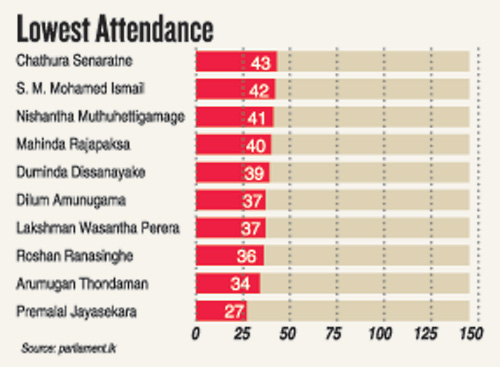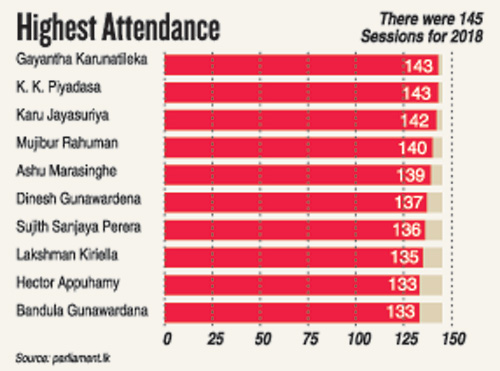Columns
Constitution making: The hard road ahead
The making of a new Constitution for the country was never going to be easy, but views expressed this week by leading political players in the country showed that, however noble the ideals of those who have set the process in motion are, it’s going to be a highly divisive process.
Leader of the Opposition Mahinda Rajapaksa made it clear on Friday when Parliament met as the Constitutional Assembly (CA) that such a process cannot be taken forward by the Government of Prime Minister Ranil Wickremesinghe as they had no ‘moral right’ to engage in enacting a new Constitution given their dismal performance at the last electoral test they faced by way of the Local Government election in February last year.
Rajapaksa was keen that an election be held first before the Government dabbles in the constitutional making process. “We cannot do this within Parliament. This should be approved by the people. You should hold an election. We will bring our proposals for a new constitution and let the people decide,” he said.
Prime Minister Wickremesinghe tabled several documents when the CA met which included a report prepared by the Panel of Experts for the Steering Committee which is based on the Interim Report, six Sub Committee Reports, the Report of the ad hoc Sub Committee set up by the Steering Committee to look into the relationship between the Parliament and the Provincial Councils. These included a draft of what would be the salient features of the proposed new Constitution.
The Prime Minister sought to put to rest the two most contentious issues that the Mahinda Rajapaksa camp has been using as the bogeymen to derail the constitutional making process, reassuring that the unitary status of the existing Constitution as well as the foremost place guaranteed to Buddhism will remain unchanged.
The draft Constitution tabled on Friday states, “Sri Lanka (Ceylon) is a free, sovereign and independent Republic which is an aekiya rajyaya / orumiththa nadu with the words “aekiya rajyaya / orumiththa” meaning a State which is undivided and indivisible while the Chapter on Religion guarantees “Buddhism the foremost place with the State being duty bound to “protect and foster the Buddha Sasana.”
“None of the proposals in the draft allows for a division of the country. There are some who repeat that the country is being divided. We have been given a mandate to formulate a new constitution. There are various proposals as to how power could be devolved within a unitary state. We could select the most suitable proposals and develop them in formulating the new constitution,” the Prime Minister said.
However such guarantees were a hard sell where the Leader of the Opposition and his group in Parliament were concerned, with Mr. Rajapaksa keener on elections than getting dragged into a constitution making process. “There is serious doubt if the people will accept this. You have already delayed elections. You have prevented the people from expressing their verdict. Do not try to fool the people and Parliament,” he said.
The JVP too noted that the Constitution-making process initiated by the government is moving too slowly and has failed to bring about a consensus among various political parties and groups.
“It’s three years since the process started but the process is moving very slowly. The Steering Committee itself is divided into several factions. It has met 83 times in the past three years but there is no agreement on many important issues. If the Steering Committee cannot come to a unanimous decision, how can we agree on a new Constitution?” JVP leader MP Anura Kumara Dissanayake queried.
There was a call from TNA Leader R. Sampanthan for the enactment of a Constitution that would unite all the people of this country. “All Sri Lankans have the right to their motherland. All are equal citizens of this country. We should be united in our approach. We have failed to protect unity in diversity and create a common Sri Lankan identity. It is our intention to unite people through this constitution,” he said.
Only 56 of the 225 MPs in Parliament were present when the CA met on Friday. This is a reflection that the Constitution making process is being viewed with scant regard by a majority of lawmakers. Given the inflammatory nature of the views expressed by those opposed to the proposals on the table, taking it forward from here will be a massive challenge for this government which is also grappling with many other issues that are more the priority for the public at large, than the enactment of a new Constitution.
| Poor attendance in Parliament a perennial problem | |
| By Chandani Kirinde
The lowest attendance was by Ratnapura District UPFA MP Premalal Jayasekera who attended only 27 sittings, while CWC leader and UPFA Nuwara Eliya District MP Arumugam Thondaman came next with 34 days of attendance. UPFA MP Duminda Dissanayaka attended sittings on 39 days while Kurunegala District MP Mahinda Rajapaksa attended on 40 days. UNP Deputy Leader, Minister Sajith Premadasa attended Parliament on 48 days and Minister Harin Fernando attended on 50 days. Chief Government Whip Galle District parliamentarian Minister Gayantha Karunatillake and UNP Nuwara Eliya District MP K K Piyadasa clocked in the highest attendance with 143 days each, followed by Speaker Karu Jayasuriya who was present on 142 days. Others with high attendance include UNP Colombo District MP Mujibur Rahuman (140 days), UNP National List MP Ashu Marasinghe (139), Joint Opposition Group leader UPFA Colombo District MP Dinesh Gunawardena (137), UNP Kegalle District MP Sujith Sanjay Perera (136) and Leader of the House Lakshman Kiriella (135) days. Others who attended more than 100 days of sitting include Prime Minister Ranil Wickremesinghe (115), JVP MP Anura Kumara Dissanayaka, who functioned as Chief Opposition Whip till last month (114), Nimal Siripala De Silva (111) and former Leader of the Opposition TNA MP R Sampanthan (103). Poor attendance in Parliament has been a perennial problem in recent years even though the sitting allowance for MPs was raised last year from Rs500 to Rs2,500 per sitting day. (See full graph of attendance of all MPs on our online edition http://www.sundaytimes.lk/)
|




Leave a Reply
Post Comment